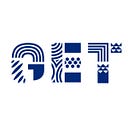The Challenges and Opportunities of STEAM Education in China?How the trends shape the industry?
The Education Policy as the Guidance
The Reform of College Entrance Exam and Chinese Student Core Qualities Development are the two critical education policies issued in the recent years. From these policies, we can see that old grade-oriented model has been breaking, while there comes STEAM education era in China.
On May 11, the first STEAM textbook of elementary schools launch event was held in Beijing Fangcaodi International school. The series of teaching material is based on projects and mainly focus on “thinking development” of students. The textbooks were compiled by professors from Beijing Normal University and hundreds of front-line principals and teachers. The launch suggested that STEAM education officially entered the stage of elementary education in China.
Together, the Minister of Education issued the notice of effectively alleviating the after-school burden of primary and middle school students, paying particular attention to lightening pressure coming from the after-school and cutting connections between competition results and school enrollment, which indicated that education in China is undergoing unprecedented reforms.
As the supplements to the public education, after-school institutions are more sensitive to the education policies. Many are initiating changes to adapt to the new educational environment.
Post-alleviation Era: TAL’s Selling Point Shifted from Grade Improvement to STEAM Education
In April 2018, the private education association of Haidian, Beijing organized the signing ceremony of “Haidian Private Education and Training Institution Commitment”, aimed at alleviating the burden of primary and middle school students and standardizing the training and enrollment of public schools. Twenty-six after-school institutions participated in the ceremony, which included TAL, New Oriental, Xueda Edu, etc.
Under the supervision, grade-improving, the traditional publicity strategy can no longer be the selling points of the after-school institutions. Meanwhile, the demand for STEAM education coming from parents and students are becoming more and more urgent. It is time for K12 after-schools found new selling points that conform to the new policy and satisfy the new demand.
In this situation, TAL shifted its concentration to STEAM education. Lately, it announced the plans to upgrade primary mathematics teaching, which include adjusting the syllabus, the teaching methods, and the evaluation standards. There will be more practical teaching and interact in the class to cultivate students’ manipulative abilities. Video recording shall be improved to increase interaction among students, teachers, and parents.
TAL also mentioned adding culture elements in the class. Teachers will apply innovative approaches to lead students to a specific situation at the beginning of the class so that students can better see the practicality of the courses. Project-based learning will be introduced in the class so that students will have opportunities to explore the knowledge themselves and practice the abilities of thinking. At the end of the class, there shall be applications of math in the real life, to infill students more fulfillment of what they have learned.
For the evaluation aspect, TAL shall change the original grade-focus methods, and shift to multiple ways of assessment, which concentrates more on students ‘abilities. TAL expresses it determination in promoting students’ interest in mathematics, and further, it aims to develop personalized learning contents and teaching methods.
The Difficulties of PBL Practice
While PBL (project-based learning)has gradually become an attractive selling point in STEM education, it is actually facing great challenges at the moment.
When PBL was introduced in China, there have been lots of difficulties in localization. K12 public schools were in lack of experienced teachers, while after-schools did not have sufficient time to carry out the practice.
The enthusiasm of teachers working in public schools was not high enough. On the one hand, they need to consider about evaluation standards, if the schools did not force them, they were short of motivation to initiate themselves; on the other hand, their educational thoughts have not been transformed. They have not been adapted to the student-centered teaching methods.
Some teachers have not sufficient comprehension on the projects, so they just chose easy ones for students to practice; Some inclined to develop a set of curriculums which catered to all the students without considering their interest and need; Others purposely reduced students speaking and independent thinking and creating time in order to maintain order in the classrooms. All these weakened the effects of project-based learning.
The challenge for the after-schools is lack of time, as for the most of time, they only own 90 minutes of students per week. How to break a big project into small pieces is what the after-school institutes need to figure out. Besides, they also need to know more about students in a shorter time and teach in accordance with their aptitude.
For students, as they have been accustomed to the exam-oriented education, and developed their learning habits according to it, they also need time to adapt PBL way of studying.
Apparently, although STEAM education has become the trend of education, there is still a long way to localize it into China’s education environment.
What are you interested about China’s education market? What else do you want to know about education and technology in China? If you are looking to expand your business in China EdTech market, or seeking partners, do not hesitate to contact JMDedu and have a chat with our industry experts! Please contact us at global@jmdedu.com
— — — — — — — — — — — — — — — — — — — — — — — — — — — — — — — JMDedu is the №1 EdTech B2B Media platform in China. Our mission is to support the ecosystem of education technology in China as well as globally. Our network is across education industry — entrepreneurs, investors, startups, educators, business-decision makers, and policy-decision makers.
Know more China’s education market, click here
